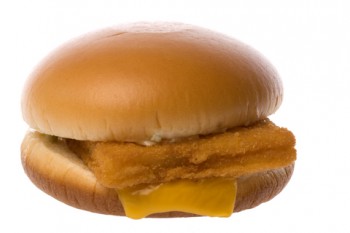Don’t Gimme That Filet-O-Fish!
A few of us here blinked our eyes a few times when we saw the headline, “McDonald’s Filet-O-Fish to carry MSC eco-label.” Did McDonald’s just earn itself an eco-label in Europe? Maybe it was the reputation of the fast food giant that fueled our doubt. But another reason behind our skepticism is the questionable claims behind the Marine Stewardship Council (MSC) label. McDonald’s Filet-O-Fish is made with New Zealand hoki — a fish that many believe should not have been certified by MSC — and the fisheries that provide it have violated that country’s Fisheries Act. Because of the hoki’s troubled history, its certification by MSC has been controversial. MSC’s decision to certify McDonald’s’ hoki is a huge part of the problem.
 A few of us here blinked our eyes a few times when we saw the headline, “McDonald’s Filet-O-Fish to carry MSC eco-label.” Did McDonald’s just earn itself an eco-label in Europe? Maybe it was the reputation of the fast food giant that fueled our doubt. But another reason behind our skepticism is the questionable claims behind the Marine Stewardship Council (MSC) label.
A few of us here blinked our eyes a few times when we saw the headline, “McDonald’s Filet-O-Fish to carry MSC eco-label.” Did McDonald’s just earn itself an eco-label in Europe? Maybe it was the reputation of the fast food giant that fueled our doubt. But another reason behind our skepticism is the questionable claims behind the Marine Stewardship Council (MSC) label.
McDonald’s Filet-O-Fish is made with New Zealand hoki — a fish that many believe should not have been certified by MSC. This particular fishery, in fact, has previously violated that country’s Fisheries Act. Because of the hoki’s troubled history, its certification by MSC has been controversial. MSC’s decision to certify the fishery that supplies McDonald’s’ with their hoki is a prime example of how eco-labels are not always what they seem.
Food & Water Watch’s Marie Logan was invited by the European Parliament to Brussels to give a presentation at a public hearing there — sponsored by the European People’s Party — about the labeling of fish products in Europe and misconceptions associated with eco-labels. Marie pointed out that seafood certification is tricky because a program like MSC makes a profit from the certified fish that are sold. Ultimately, certification programs are trying to promote their own brand and they don’t always meet consumer expectations for what is sustainable. Be sure to check out the report that Food & Water release last year called, “Decoding Seafood Eco-Labels.”
In Europe, consumers have high expectations. According to a survey of European consumers conducted by Seafood Choices Alliances, about 95 percent of respondents desired information to help them avoid bad seafood that damages the environment. MSC’s nod of sustainability to McDonald’s’s Filet-O-Fish falls far short of those expectations.
Certification programs should be transparent and represent a clearly defined set of standards. The information they provide to consumers for guidance should come from independent sources free from the financial interests that are associated with marketing seafood. Any label that tells consumers that a fish product is “sustainable,” “organic,” “eco-friendly” or “environmentally responsible” should be able to support such claims with more than just a sticker.
If McDonald’s and MSC really wanted the Filet-O-Fish to be sustainably sourced, they would clearly define sustainability according to five basic principles:
1. Ecological impact: Wild fish should be at healthy population levels, and the fishery should not damage marine habitat or adversely affect other species. Farmed fish production must not pollute or spread disease.
2. Social impact: Labor standards must be fair, working conditions should be safe and the economic, health, and safety impacts on surrounding communities must be considered.
3. Sustainable seafood should encourage a diversified seafood economy and avoid heavy marketing of a few popular species. It is important that people are able to purchase a wide variety of fish and shellfish options to benefit fishing communities, consumer health and ecological sustainability.
4. Consider transport and distance of the product from the market. Eating local or regional seafood helps to limit fossil-fuel-consuming food miles.
5. Seafood must not be farmed with dangerous antibiotics, drugs or chemicals and must not pose a contamination threat to consumers.
For now, forgive our lackluster response to MSC’s certification of McDonald’s Filet-O-Fish.


